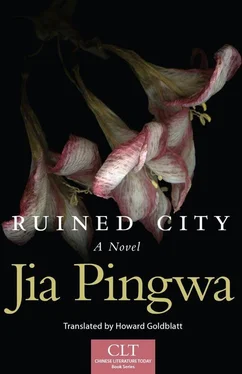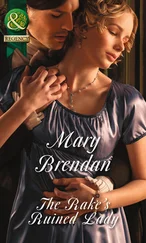All this made the cow laugh, which was manifested in the form of a sneeze, something she did every day. Then she resumed her contemplation, going back and forth with her thoughts. Occasionally she hit upon the idea that she didn’t really understand humans, while wondering whether her inability to deal with this overcrowded city was due to the fact that she wasn’t human and didn’t have city residency. She was, after all, a beast of burden, with a wild streak, a large capacity to digest grass, and a substantial body with no need for clothing. Yet she firmly believed that humans were just one of the beasts that had populated the earth back when the world was in primal chaos. At the time, there was a correspondence between heaven and earth, between all animals and heaven and earth, when humans and animals were equal. Now humans were among the most populous species, along with flies, mosquitoes, and rats, and were different from other animals solely because they built cities like this. Sadly, however, they had built a city that made their species move in reverse, turning into them selfish, petty, narrow-minded creatures whose fingernails were not strong enough for anything but cleaning their ears. Their intestines, too, grew shorter, with one section becoming a useless appendix. Snobbery made them look down on other animals, oblivious to the fact that the creatures in the mountain forests and the rivers were silently anticipating the impending doomsday annihilation. Moreover, the cow had always sensed that this city would be leveled one day, as she realized on quiet nights that it was sinking, either because so much water was being drawn every day or because the pressure of increasing numbers of people and buildings was affecting the movement of the earth’s crust. But completely unaware, the humans continued to pile cement on top of the land and to ceaselessly draw water from underground. Hadn’t some of the eight rivers that circled the city and gave the residents so much pleasure already dried up? Wasn’t the Giant Wild Goose Pagoda, the city’s landmark, slanting so much it was about to topple? When that day came, the city would sink into the ground, while the water from the Yellow River could turn the place into a marsh; either that or it could be drained of water, overgrown with wormwood. Then and only then would humans truly see the error of their ways; they would know how wrong they had been, but they would have already become fish and tortoises in the marsh or wormwood-eating cows, sheep, pigs, and dogs. They would understand how wild animals were one with heaven and earth, and know that they must find a new way to survive in the world.
Thinking about this made the cow’s head hurt. She was walking down streets in a haze, with the satisfying feeling that she was a philosopher, though she rued the insufficient intelligence she had been given, for her thoughts were so jumbled that her head ached from prolonged contemplation. Sometimes her soul would leave her body, giving her the illusion that she was pulling a plow from the Western Han dynasty or the early Tang period, searching in vain for a field as she stared uncomprehendingly at the constantly moving heels of shoes, while she was hemmed in by little cars that looked like dung beetles. She had to sigh over her lack of wisdom and her uncontrollable tendency to lose concentration. Hence, as Aunty Liu took her down a path outside a park wall, she decided to turn and gnaw on wild jujube thorns. Humans ate hot peppers for their spiciness, and cows chewed on date thorns for the prickliness. Aunty Liu was so upset, she kept hitting her with a switch.
“Get moving. Come on, it’s getting late.”
. . .
It was taking Zhuang Zhidie’s injury longer than expected to heal, so Niu Yueqing would not let him move around after changing the dressing. She talked to the elderly gatekeeper and to the families on either side of the lane outside Shuangren fu, asking them not to give out Zhuang’s address and to tell visitors he was not home. In private, she also told Liu Yue to keep the phone off the hook so no calls could come through; that bothered Zhou Min more than anyone. One afternoon he came to tell Yueqing about the three directives from the head of the Propaganda Section at the Department of Culture, as well as their decision that Zhou and someone from the magazine must apologize to Jing Xueyin. He and Li Hongwen had gone. Jing had received them, her head held high as she painted her fingernails. When she was finished, she inspected her nails but did not say a word. Zhou spat on the floor, opened the door, and walked out. When Li reported their visit, the department head said, “Well, she can ignore you if she wants. We don’t have to do anything about the other directives, just the third one, which requires us to publish a formal announcement in the next issue. You go write a draft, and I’ll check it later.”
Zhou Min had gone to see Zhuang about the wording, but he had been at the People’s Congress that day, and Zhou was not allowed into the Gudu Hotel. Since he was running out of time, he penned a draft with Zhong Weixian the following morning. The department head sent the draft for Jing’s approval, which she refused to give, complaining about the ambiguous language and demanding that the words “grave inaccuracy and malicious slander” be added. Zhou and Zhong naturally would not concede, resulting in a stalemate. The department head then handed the draft to the Propaganda Section for their judgment. Zhou went to the Literary Foundation compound and to Zhuang’s house a few more times, but each time was told by the gatekeeper that he was not home. He phoned both houses and became suspicious when he always got a busy signal, wondering if Zhuang had decided to wash his hands of the matter. If Zhuang, a celebrity with many connections, turned his back on Zhou, then he would be done for. He silently cursed Zhuang at home.
Tang Wan’er had something else on her mind. She was worried that Zhuang had been avoiding them because Niu Yueqing had learned about her visits to Zhuang’s hotel room. She recalled that when she had stealthily appeared outside his room that afternoon, the door was ajar but Zhuang was nowhere in sight. After waiting half an hour, she had to leave, so she walked up and down the hallway before going downstairs and sneaking into the alley, where she checked to see if the light was on in the third window. She waited two hours, until her neck was sore and her feet hurt, but the window remained dark; finally she turned and went home in dejection. They had agreed on her visit, so why wasn’t he in his room? Somehow their tryst must have been exposed, or Niu Yueqing had gone to the hotel and forced him to return home every night. Either that or the hotel staff was gossiping when they cleaned Zhuang’s room and found long hairs and curly pubic hairs on his sheets and in the tub. With her mind occupied with these thoughts, she was so lethargic she stayed home several days in a row, wedging herself into the bed or a chair as she read a book called A Collection of Great Classical Essays . Included in the book was “Six Chapters of a Drifting Life” by Shen Fu, and “Reminiscences of the Plum Shadow Studio” by Mao Pijiang, about his life with the famed courtesan Dong Xiaowan, along with a section on women in “Idle Sentiments and Occasional Thoughts” by Li Yu, with which she began. She was puzzled by the section about the critical trait of deportment until she read the argument that fine deportment can enhance the allure of an unattractive woman, while poor deportment can detract from the charm of a pretty one. Deportment for a woman is like a flame to fire, like brightness to a lamp, or luster to jewelry. It was an eye-opening revelation. Isn’t deportment what we call style? she said to herself, confident that she definitely had that. She then fell head over heels for Dong Xiaowan in “Plum Shadow Studio,” and compared the talented Mao Pijiang with Zhuang Zhidie. Mao was the romantic sort; so was Zhuang. Did that mean she was a modern-day Dong Xiaowan? Could anything be more wonderfully coincidental, since there was also “wan” in her name? She cocked her head and, sensing that Dong Xiaowan was drifting gracefully toward her, smiled sweetly. Then she gazed out the window at the pear tree, thinking how beautiful it was in the spring when it was covered in simple white blossoms, and in the winter when it was blanketed by thick snow. She would be inside listening to the snow while Zhuang walked down the snowy path to wait for her; he must look as white as the tree. Being summertime, there were no blossoms nor any snow, and the leaf-covered tree looked emaciated, as sparse as her life. Engrossed in her dreamy state, she read on. When she read about rain, she got up and walked into the yard, where she found, to her surprise, that rain was falling. Gazing at the pear tree in the lonely rain, she was convinced that it was Zhuang Zhidie’s avatar. So had he come here to wait for her long before she’d moved into this place? She wrapped her arms tightly around the tree for a while before going back inside, where she let a raindrop fall from her eye onto the open book.
Читать дальше


![Matthew Vincent - [you] Ruined It for Everyone!](/books/216429/matthew-vincent-you-ruined-it-for-everyone-thumb.webp)









